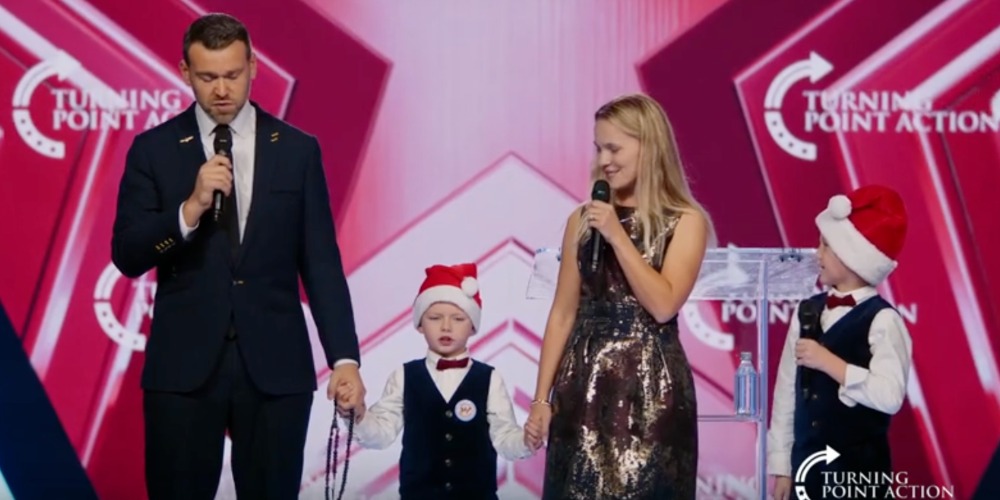The campaigns for national, state, and local Republican Party leadership are heating up. It is well that they are, for there is much work to be done. Presently, what was once a tremendous force for the expansion of human freedom has devolved from a movement to a racket.
Given recent Congressional leadership races, it is important to recognize the following is about the process of selecting national, state, and local Republican party leadership. Thus, regarding the party’s leadership candidates – indeed, for all those grassroots activists who serve within it at all its levels – they are to be commended for civic involvement.
That said, it does not mean that they are immune to the critiques of their fellow Republicans both inside and outside the party structure. After all, party officials from precinct delegates to chairs are the servants of their fellow Republicans. Thus, criticism (be it constructive or otherwise) comes with the territory. An unwillingness by party members and officials to recognize their power is delegated and, instead, seeking an absence of accountability will only worsen the situation, and wreak more defeats.
Of course, the temptation will be to view these leadership contests in the false prisms of personalities or subjective definitions of “RINO” or “Establishment.” Such prisms are an impediment to rebuilding the GOP. They oversimplify the races, obscuring the deep-seated, systemic problems which must be redressed; and engendering the unnecessary animus amongst Republicans that the Leftist media delights in airing to make us look angry, chaotic, and incapable of governing.
This is not a universal condemnation of every GOP state and local party. Many have weathered the recent storms and have, in fact, prospered. Doubtless, they are already in the process of again doing so by continuing to review and, where needed, adapt their election operations to capitalize upon their realistic assessment of current political conditions. What is needed is for every GOP organization to emulate this plan of introspection, correction, and success.
It is also true that not all states are red. Many are blue; many are deep purple. Yet, this is even more reason for using the proper criteria for electing party leadership. To change the minds of voters about Republican candidates and causes can be a sprint in swing states, but it can be a marathon in blue states. All the more reason to avoid unnecessary missteps and self-inflicted wounds along these long journeys to good government.
Thus, to facilitate rebuilding the Republican Party, one should consider the following suggestions to spur the process of rebuilding the Republican party on the national, state, and local levels. The list is general and certainly not comprehensive; but it should help instruct how to assess the pending leadership races; promote the winning of general elections; and help restore the GOP as the preeminent movement championing the eternal verities and virtues of faith, family, community, and country.
In assessing the leadership races, the prism to use is elementary: will the contest’s result promote or diminish GOP candidates’ ability to win general elections?
This is not as obvious as many believe. By their nature, party leadership races are intra-party contests. But they are held to ensure inter-party success against the Democrats and other parties. It is far too easy – and the corporate media is more than happy to help – for GOP leadership candidates and their supporters to get lost in the sturm und drang of the intra-party battle and forget it is not an end unto itself. After the outcome, the GOP’s ultimate goal remains: winning general elections. It is recognizing this political reality that will prevent the GOP from devolving into a defunct, defeated debating society stone deaf to the challenges confronting America.
Employing this proper prism of who and how best to win general elections, a few key criteria will help guide the proper leadership decisions and facilitate future GOP wins.
- Will there be a probing assessment of the party’s internal and external standards and practices, including scathing audits of their consultants’ performance?
- Will there be a thorough analysis of the electorate, including why they are and are not voting Republican, what are the top concerns and issues, and what are the demographic changes taking place within it?
- Will the new party leadership live in the past or learn from it – notably by adapting to and ultimately defeating the Democrats under the new electoral rules prevailing in many states?
- What ways and means will be used to close the funding gap between the parties, entailing not only better GOP fundraising operations, but also an understanding of how the opposition funds itself, including strategies to counter their dark money?
- What messaging and operations will be employed to identify and attract new Republican voters and build new, winning coalitions?
- What activities exist or are expected to provide and ensure meaningful grassroots participation in the party’s election operations and its overall direction?
- What current technologies’ use can be implemented or improved by the party in its election operations?
- Does a leadership candidate live in the past or did they learn from it, especially an understanding of how to redress the failures of the past to ensure future success?
- Does the leadership candidate have the capability of adapting to and transcending the present and future electoral challenges, conditions, and opportunities to promote future success?
- Does a leadership candidate view the party as an operation or an inquisition? Is their top priority purging the party’s current membership, donors, coalitions? Or is it to attract new members, donors, coalitions, and voters?
- Does the leadership candidate have messaging skills, notably discipline, requisite to fruitfully connecting with and expanding the base of party members, donors, coalitions, and voters despite a hostile media?
- Does the leadership candidate view the party as primarily a stepping stone for their own success?
- Does the leadership candidate intend to have the party interfere in primaries?
- Does the leadership candidate have a track record of personal and organizational success indicating their future performance if elected?
- Lastly, and most importantly for both Grand Old Party’s leadership candidates and the grassroots and others who will vote upon them, do you realize that there is no more time, money, or votes to be squandered offering excuses instead of answers, blaming instead of building, whining instead of winning?
My fellow Republicans, choose wisely. There is far more than our party’s future resting in your hands.
A Human Events contributor, the Hon. Thaddeus G. McCotter (M.C., Ret.) represented Michigan’s 11th Congressional district from 2003-2012, and served as Chair of the Republican House Policy Committee. Not a lobbyist, he is a frequent public speaker and moderator for public policy seminars; and a Monday co-host of the "John Batchelor Radio Show," among sundry media appearances.






